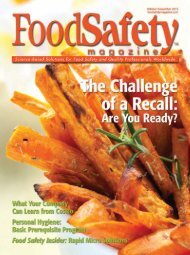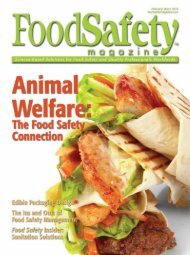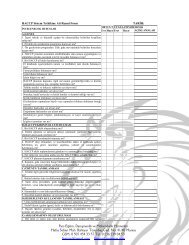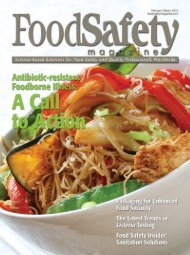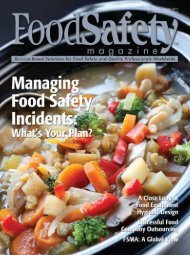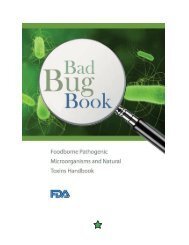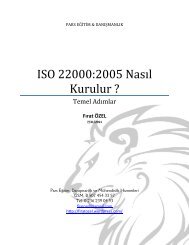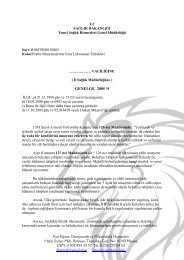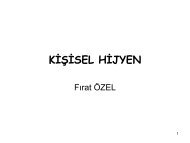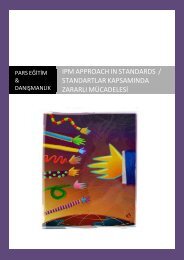Food Safety Magazine - June/July 2013
Food Safety Magazine - June/July 2013
Food Safety Magazine - June/July 2013
Create successful ePaper yourself
Turn your PDF publications into a flip-book with our unique Google optimized e-Paper software.
PRODUCE<br />
Fruit and Vegetable NIG as official, allowing U.S. produce operations<br />
to be certified to the Produce <strong>Safety</strong> Standards using<br />
the verbatim Harmonized Standards plus the GlobalG.A.P.<br />
riders. As of this writing, the GlobalG.A.P. Produce <strong>Safety</strong><br />
Standards are being re-benchmarked to the new GFSI Guidance<br />
Document 6, but retailers requiring certification to a<br />
GFSI-benchmarked standard are accepting the GlobalG.A.P.<br />
Produce <strong>Safety</strong> Standards certificates.<br />
The Safe Quality <strong>Food</strong> (SQF) Institute took a different approach<br />
to adopting the Harmonized Standards. In 2012, SQF<br />
reorganized its food safety standards, combining its SQF 2000<br />
standards for processed foods and its SQF 1000 standards for<br />
produce growing and handling into a new set of standards<br />
aligned with the new GFSI Guidance Document 6. SQF implemented<br />
a “Module 2,” covering an operation’s food safety<br />
management system and required for all operations undergoing<br />
SQF certification. The institute also modified its SQF<br />
1000 requirements into a “Module 7,” covering fresh produce<br />
growing and harvesting. SQF submitted these and other modules<br />
to GFSI and completed re-benchmarking in late 2012.<br />
At this writing, with the bulk of the re-benchmarking process<br />
complete, SQF plans to submit the Harmonized Standards,<br />
verbatim except for the portions already covered in its mandatory<br />
Module 2, to GFSI for benchmarking as an alternative<br />
“Module 7H.”<br />
Thus, for operations whose buyers require them to be certified<br />
to a GFSI-benchmarked standard, they have two options<br />
with the Harmonized Standards, and operations can choose<br />
whichever best fits their culture.<br />
The fly in this ointment, however, is that the GFSI guidelines<br />
don’t appear to allow for government auditors to be<br />
certification bodies, as the GFSI guidelines require private<br />
sector oversight by an accreditation body like ANSI. At this<br />
writing, USDA and several state departments of agriculture are<br />
exploring ways around this obstacle. If successful, then operations<br />
torn between buyers requiring GFSI and governmentperformed<br />
audits can do both with one audit using the Harmonized<br />
Standards.<br />
Calibration Committee and Standards Interpretation. A key aspect<br />
of the harmonization process was to use the words from<br />
established food safety standards to write the Requirements<br />
and Procedures of the Harmonized Standards without change.<br />
While some editing was done to remove redundancies, the<br />
TWG was largely successful in keeping to this process. Additional<br />
words and columns (i.e., Verification and Corrective<br />
Actions) were included to clarify what was being required and<br />
minimize opportunities for “audit creep.” For example, the<br />
TWG carefully stated when policies, procedures and records<br />
were required to be written, allowing for verbal policies and<br />
procedures to suffice when not critical for safe practices, par-<br />
Find it before someone else does.<br />
Accurate lab results are the most important item on<br />
the menu. That’s why API, a leader in proficiency<br />
testing for labs, has developed a proficiency testing<br />
program that meets the unique needs of the food<br />
industry. Developed with food industry leaders,<br />
our A2LA-accredited proficiency testing program<br />
was developed to meet the needs of laboratories<br />
seeking to achieve or maintain ISO/IEC 17025<br />
accreditation. Don’t wait for today’s special to be<br />
tomorrow’s news.<br />
foodpt.com • foodtest@api-pt.com<br />
U.S. & Canada 800.333.0958<br />
International 1.231.941.5887<br />
NOW A2LA ACCREDITED TO ISO/IEC 17043<br />
J u n e • J u l y 2 0 1 3 63



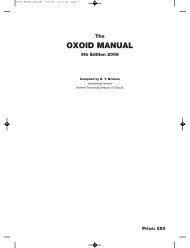
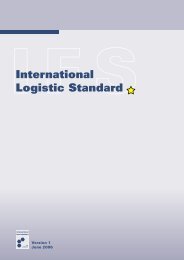
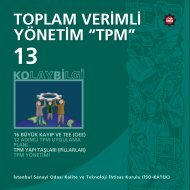
![Otomatik indirilmez ise tıklayınız [Download]](https://img.yumpu.com/44170525/1/190x190/otomatik-indirilmez-ise-taklayanaz-download.jpg?quality=85)
